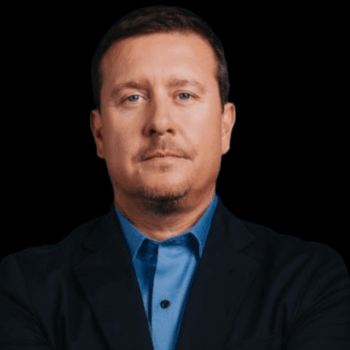Jacob James Rich has one specialty: proving others wrong. He doesn’t theorize, doesn’t gesture. He reruns the numbers. “I kind of call myself a replicator,” he says. “Most of what I do is grab data and try to verify whether they were done correctly. And about eighty percent of the time, the answer is no.”
He isn’t gentle about it, either. Rich studied math and economics, worked at the Cato Institute, moved to Reason, and now grinds through a PhD in epidemiology at Case Western. Along the way, he worked with the Cleveland Clinic — though their legal department won’t clarify what, exactly, he was. “They’ve kept that reasonably vague, probably on purpose.”
The real work began when he started running replications on public health studies — many of them well-funded, widely cited, and, by his count, mostly junk. “If their results are magnitudes or even directionally different from what I come up with,” he says, “then I say they don’t replicate.”
Drugs are his focal point. Especially opioids. Rich doesn’t buy the reigning narrative that buprenorphine and methadone are the gold standard. “I think about this in terms of incentives,” he says. “The longer that you are addicted, the more that the buprenorphine and methadone companies make on you.”
Dr. Randall Bock treated thousands of addicts with Suboxone over the years and sees the trap. “I don’t think it helps the patient’s soul,” Bock said. “It helps the prescribers. It helps the clinics. But it doesn’t move someone toward freedom.” Rich agreed. He noted abstinence, not maintenance, is the real goal. “The best treatment path forward is abstinence,” he said. “Just realizing that you’re not a slave to anything. Sex, drugs, alcohol. If you realize you have a problem, cut it out.”
Transgender medicine, Rich says, challenges his libertarian instincts. “These procedures are inherently harmful,” he said. “They hurt you. They reduce your life expectancy. They’re serving no health function. And the idea that a doctor could provide those services without violating the Hippocratic oath is absolutely absurd to me.” He doesn’t reflexively call for bans but questions whether true consent is even possible. “If I went to the Cleveland Clinic and said I identify as a one-armed man and asked them to amputate my arm, they’d commit me. But if you ask them to remove your genitals, suddenly that’s healthcare?” Like opioid maintenance therapy, he sees it as a system that medicalizes a condition, not to cure, but to keep the patient dependent. “You’re never going to be able to break away from your physician,” Bock added. “It’s a good business model. You’ve got a customer for life.” Rich didn’t disagree.
He sees a bigger problem in the way government steers healthcare. “Doctors follow flowcharts,” Rich said. “They’re bowling with the bumpers up.” Bock called it the “parental model” — where the physician acts like a gatekeeper, denying basic access unless the patient jumps through enough hoops.
Nicotine policy is another target. Rich blasted Massachusetts towns like Brookline for banning cigarette sales to anyone born after 2004 — forever. “It’s prohibition,” he said. “They go after products with the smallest constituencies first. It’s not about health. It’s just that no one’s going to defend them.”
On COVID, Rich doesn’t hedge. “If the government would have never reacted to COVID, way fewer people would have died,” he said. “Through fear, we allowed very evil people to set the policies and enrich themselves.”
He still wants science to work. Wants to be able to trust institutions. But most of what he finds is partisan, tribal, and cooked. “The bias is always towards the ideological position of whoever’s writing it.”
Bock, citing economist Herb Stein, reminded listeners: “That which can’t continue, doesn’t.” And Rich, for all his skepticism, still publishes his code and his data and dares people to find a flaw. “You know where I stand,” he says. “Come at me.”
Join us on weekdays at 5 pm ET weekdays on America Out Loud Talk Radio. Listen on iHeart Radio, our world-class media player, or our free apps on Apple, Android, or Alexa. Discover all the episodes on podcast networks, i.e., Apple Podcasts, Spotify, Pandora, TuneIn, Stitcher, and iHeart. You’ll find them the day after they air on talk radio, available on podcast. Extraordinary voices for extraordinary times.
Discover more from Randy Bock MD PC
Subscribe to get the latest posts sent to your email.

























